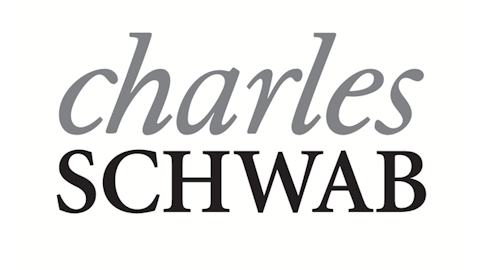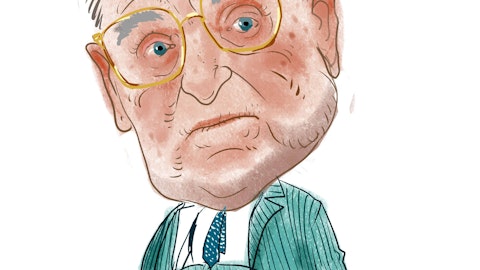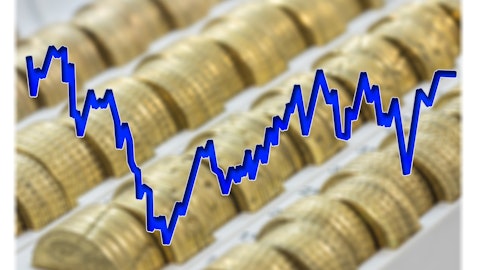All major U.S stock indexes posted gains on Monday despite being dragged down by energy stocks. The Standard and Poor’s 500 Index closed 0.03% in the green, despite the energy sector losing 1.9%. U.S-listed energy companies were pressured by falling crude oil prices, which were in turn pressed by worries about Iran boosting production in addition to the freshly-released data on China’s economic growth. Even so, the S&P benchmark has gained 5.92% since the beginning of the month, which might suggest that the correction is already behind us. In the meantime, some companies’ insiders have been piling up more shares lately, possibly hinting that their companies’ stock is not fairly valued by the market. The Insider Monkey team identified three companies with heavy insider buying activity over the past week or so, which will be discussed in more detail later on in the article. It is hard to stipulate what might have propelled these insiders to acquire stock, but some of this activity could suggest good trading opportunities.

Most investors can’t outperform the stock market by individually picking stocks because stock returns aren’t evenly distributed. A randomly picked stock has only a 35%-to-45% chance (depending on the investment horizon) to outperform the market. There are a few exceptions, one of which is when it comes to purchases made by corporate insiders. Academic research has shown that certain insider purchases historically outperformed the market by an average of seven percentage points per year. This effect is more pronounced in small-cap stocks. Another exception is the small-cap stock picks of hedge funds. Our research has shown that the 15 most popular small-cap stocks among hedge funds outperformed the market by nearly a percentage point per month between 1999 and 2012. We have been forward testing the performance of these stock picks since the end of August 2012 and they have returned more than 102% over the ensuing three-plus years, outperforming the S&P 500 Index by more than 53 percentage points (read the details here). The trick is focusing only on the best small-cap stock picks of funds, not their large-cap stock picks which are extensively covered by analysts and followed by almost everybody.
Getting back to our discussion, we will now examine the insider buying activity at Charles Schwab Corp (NYSE:SCHW). Director Mark A. Goldfarb reported acquiring 7,100 shares last Friday at prices ranging between $28.37 and $28.89. The Director currently owns 18,735 shares valued at approximately $534,000. This move comes after the investment services firm posted its third quarter earnings report. Charles Schwab Corp (NYSE:SCHW) reported record net revenue of $1.60 billion, compared with $1.55 billion reported a year ago. Similarly, the company posted higher-than-expected net income of $376 million or $0.28 per share, which was up by 17% year-over-year. Analysts polled by Thomson Reuters anticipated earnings per share of $0.27. However, the shares of the financial services firm have lost more than 5% year-to-date, mainly owing to the recent broader market sell-off. Therefore, the Director’s bullish move might suggest his confidence in the future stock performance of the company. Ken Heebner’s Capital Growth Management added a 3.09 million-share position in Charles Schwab Corp (NYSE:SCHW) to its portfolio during the second quarter.
Follow Schwab Charles Corp (NYSE:SCHW)
Follow Schwab Charles Corp (NYSE:SCHW)
Receive real-time insider trading and news alerts
On the next page of the article, we will discuss the insider buying activity at two more companies.
Let’s proceed to the next potential undervalued candidate, Marriott Vacations Worldwide Corp (NYSE:VAC). Stephen P. Weisz, who has served as President of Marriott Vacations Worldwide since 1996 and Chief Executive Officer since 2011, reported the acquisition of a 4,000-share block yesterday at a weighted average price of $62.43, which was actually purchased by his spouse. The Executive also holds a direct ownership stake of 108,607 shares, along with an additional 19,500 shares held indirectly. The shares of the pure-play timeshare company have plummeted by nearly 32% over the past three-month period, “thanks” to the company’s disappointing third quarter earnings report. Marriott Vacations Worldwide Corp (NYSE:VAC) reported diluted earnings per share (EPS) of $0.67 on revenue of $407.14 million, compared to EPS of $0.75 on revenue of $413.04 million reported a year ago. However, analysts surveyed by Thomson Reuters anticipated EPS of $0.87 on revenue of $431.8 million. At the same time, the company lowered its guidance on contract sales to 0%-to-2% from the previous guidance of 5%-to-8%, and raised its full-year EPS guidance to $3.33-to-$3.52 from $3.29-to-$3.48. Cliff Asness’ AQR Capital Management owns 70,309 shares of Marriott Vacations Worldwide Corp (NYSE:VAC) as of June 30.
Follow Marriott Vacations Worldwide Corp (NYSE:VAC)
Follow Marriott Vacations Worldwide Corp (NYSE:VAC)
Receive real-time insider trading and news alerts
Lastly, we will take a look at the insider buying activity at PacWest Bancorp (NASDAQ:PACW). Patrick J. Rusnak, Chief Financial Officer and Executive Vice President of Pacific Western Bank, bought 2,400 shares on Monday for $42.49 each, enlarging his stake to 46,850 shares. The holding company for Pacific Western Bank also revealed its financial results for the third quarter last week. PacWest Bancorp (NASDAQ:PACW) posted net earnings of $69.6 million or $0.68 per diluted share, compared with $85.1 million or $0.83 per share reported a year ago. The company’s bottom-line results and other key financial figures embedded in the third quarter earnings report were not well received by the market, and its shares are currently more than 5% in the red year-to-date. All-in-all, it appears that the executive is buying shares on weakness, so a more in-depth analysis of the company’s financial report might shed more light on its future course. Ken Fisher’s Fisher Asset Management is the largest stockholder of PacWest Bancorp (NASDAQ:PACW) within our database, holding 2.19 million shares as of June 30.
Follow Pacwest Bancorp (NASDAQ:PACW)
Follow Pacwest Bancorp (NASDAQ:PACW)
Receive real-time insider trading and news alerts
Disclosure: None





